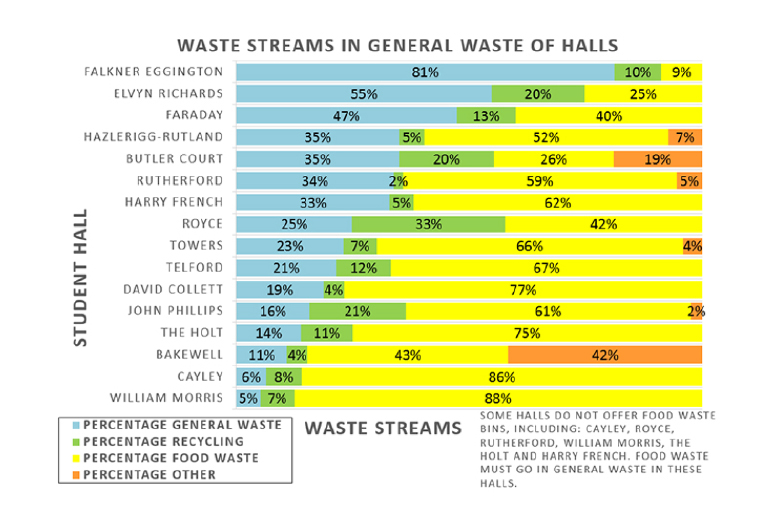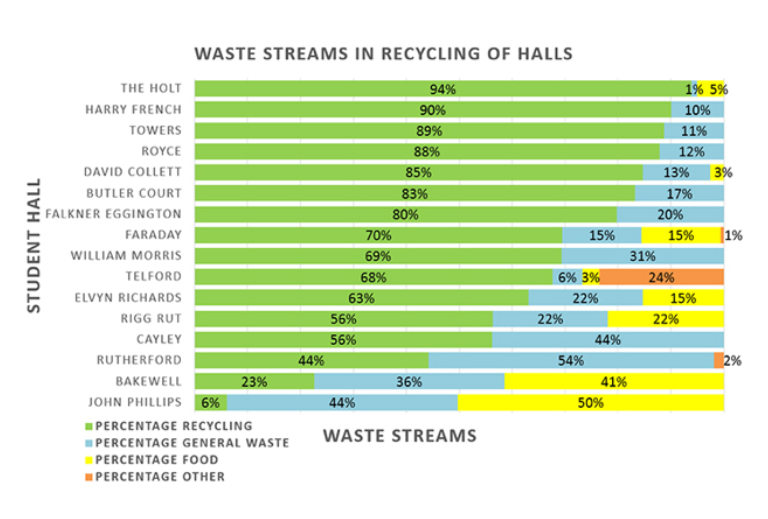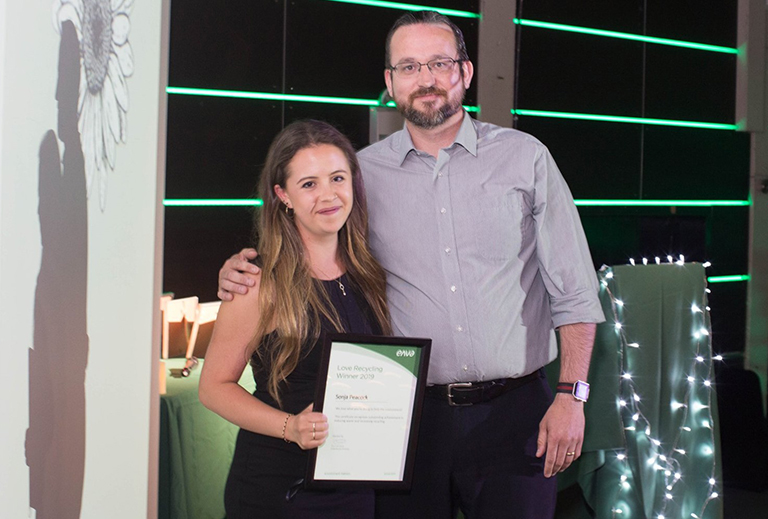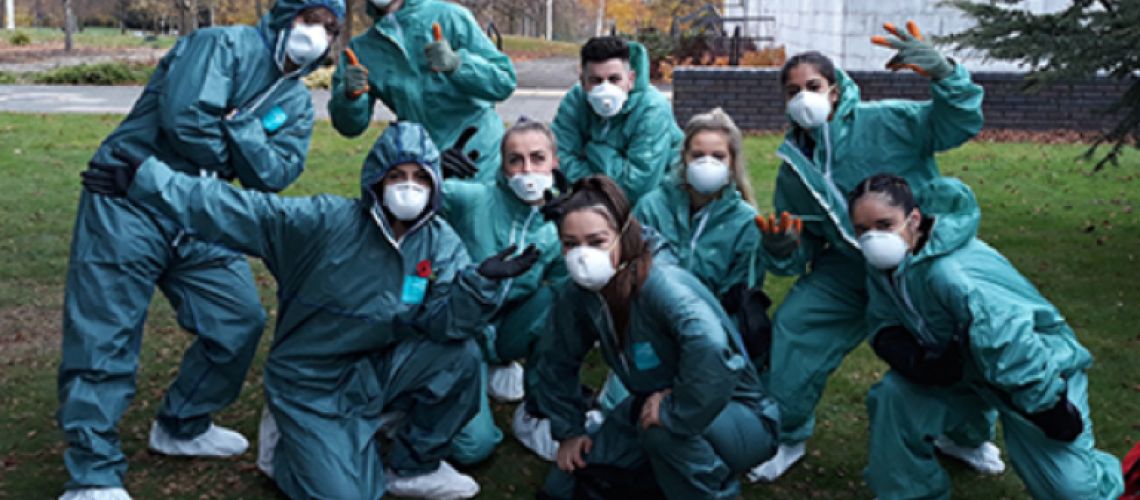Loughborough University Grime Scene Investigation
18 Jun 2019
This academic year, for the first time, two majorGrime Scene Investigation events where waste from all 16 student halls of residence at Loughborough University were audited each day for data on composition.
Composition audits, comprising the weighing of different waste types to show how well staff and students know how to recycle, have proven a useful tool to show onsite waste segregation rates at buildings with different functions and usage rates. This data can then be used to highlight specific areas and locations for targeted improvements. These events held in both Term 1 and Term 2 showed changes throughout the year in halls of residence which notoriously have poor segregation rates.
Organised by Sonja Peacock from the Loughborough University Sustainability Team with the support of Enva and around 35 Food Residential, Ethics, Environmental and Campus Watch (FREEC) Reps and Action volunteers, the public Grime Scene events engaged with more students and staff than any other year since their creation in 2015 and for the first time gathered data from all 16 halls in one day which is a fantastic achievement.
General waste findings
In Term 1, food waste comprised an average of 57% of all general waste audited (see Fig. 1). Considering ten halls of residence have food caddies and separate collections for this waste, these results showed further education of how to use this service and what items should go into the food waste stream was necessary.
Recyclable waste comprised an average of 10% of the general waste audited and other items (including textiles and batteries) made up almost 8%.
The Term 2 investigation found that, less food was found in general waste, with 21kg less than the audit in Term 1. However, there were still food items found that should not have been disposed of, such as an entire broccoli and a whole pizza, showing more work can still be done.

Figure 1: Term 1 General Waste Composition
Recyclable waste findings
Several halls showed inspiring examples of good recycling in Term 1, with over 90% of the correct waste in their samples (see Fig. 2).
On the other hand, some halls exhibited very high levels of contamination within their recycling, where 36-44% was comprised of general waste, and 41-50% was made up of food waste. Food waste in recycling is particularly troublesome, as it can contaminate large quantities of recyclable material. For example, paper and cardboard that become wet from liquids left in bottles become unrecyclable.
Halls of residence across campus improved their average recycling rates between Terms with 72% of materials being correctly placed in recycling bins in Term 2, compared to 66% at the first investigation.

Figure 2: Term 1 Recycling Waste Composition
Conclusion
The Grime Scene Investigation days have provided the Sustainability Team with valuable data that will be shared with each hall, giving students the chance to improve upon their results and compete against each other for the best marks in the Green League - the Loughborough University interhall competition based on recycling, energy reduction and proactivity.
Tom Calcluth, FREEC Chair, commented: “Taking part in the Grime Scene Investigation serves as a fantastic opportunity to display ongoing waste issues in halls in a tangible and engaging fashion – not only for volunteers taking part, but for all staff and students walking by.”
Nik Hunt, Environmental Managerat the University, added: “It was great to see so many waste and recycling partners working together to engage with the students on improving the management of waste.”
Sonja has since received an Enva Love Recycling Award for her innovation in planning and organising the event in this new style this year and for the success they have had. This award was presented during the Universities annual Green Awards evening in connection with Loughborough University’s Student’s Union and sponsored by Enva. At this event our own Key Account Coordinator also received the highly commended award in ‘Outstanding Green Contributor of the Year’ for her involved work with the students and their events this past academic year – a great night all round!


